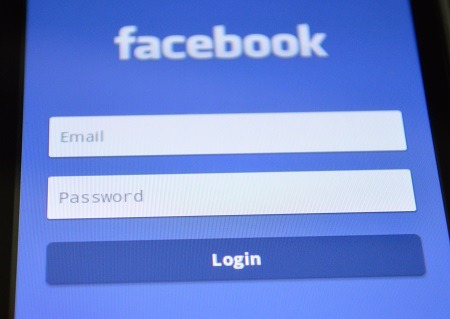 This year it was revealed that a lot more apps are automatically sending data to Facebook. In some cases this happens even if the user is logged out of Facebook. For Android devices this includes an odd mix that includes Spotify, Kayak, Yelp, Shazam, Instant Heart Rate, Duolingo, TripAdvisor and The Weather Channel.
This year it was revealed that a lot more apps are automatically sending data to Facebook. In some cases this happens even if the user is logged out of Facebook. For Android devices this includes an odd mix that includes Spotify, Kayak, Yelp, Shazam, Instant Heart Rate, Duolingo, TripAdvisor and The Weather Channel.
More recently, a Wall Street Journal study found that apps in Apple's iOS App Store are doing the same thing. In some cases, you have to wonder why the apps are sending personal data on things like like age, body weight, blood pressure, and menstrual cycles.
Instant Heart Rate: HR Monitor is an app that was sending a user's heart rate to Facebook immediately after it was recorded, and Flo Period & Ovulation Tracker passed on when a user was having her period or when she informed that app about an intention to get pregnant.
Not to exonerate Facebook, but the apps were not "required" to pass that data to Facebook. Part of the blame certainly goes to the app developers for some laziness. Many developers use Facebook's pre-built software development kit (SDK). These pre-built SDKs allow developers to quickly build apps and the SDK will typically transmit most of the data automatically to Facebook.
Actually, Facebook claims that it tells app developers not to send "health, financial information or other categories of sensitive information." Since the WSJ report, they are telling developers of the flagged apps to stop sending that type of information.
Why would Facebook want that kind of information anyway? It always comes down to targeting advertising.
Denise Howell's latest free newsletter reminds us that Facebook's mark Zuckerberg had promised last year that there would be a "Clear History" feature that would allow users to check what information applications and websites have shared with Facebook and delete it. So far, it has not been released.
Denise (a well known lawyer due to her podcasting and social media presence) says:
It hasn’t happened yet, but the FTC is expected to impose a record-breaking fine against Facebook resulting from the company’s failure to comply with a 2011 consent order aimed at privacy violations that took place over eight years ago. In the ensuing eight years, Facebook’s privacy record hasn’t exactly been pristine. Accordingly, EPIC, Common Sense Media, and others think Facebook should be fined in excess of $2 billion. Jason Kint told Vice Media, “[a] fine almost certainly would not be enough to change Facebook’s behavior — we’re past that,” and I’m inclined to agree with him. For example: even after all the outrage against and scrutiny of Facebook over the past year, if you as a Facebook user want to make all your past posts private, viewable only to you, and if you want to do this all at once (as opposed to one post at a time; which is possible but who does that), you simply can’t. This is true even though Facebook actually provides a batch feature to limit the visibility of past posts; it just limits the ability to limit, which ends at “Friends.” (Let s/he here who hasn’t over-friended on Facebook cast the first stone.) If Facebook remains tone-deaf to this unfathomable extent, then perhaps it does need more than a record-breaking fine to encourage it to course-correct. Oh, and that “Clear History” tool Zuck announced at F8 last year? The one that was supposed to let people delete Facebook’s record of what they’ve clicked, Web sites they’ve visited, and other information Facebook gets from sites and apps using FB’s ads and analytics, and was ALSO supposed to let people turn off FB’s collection of their browsing history? Yeah, that was last May, and “Clear History” is nowheresville. So, what’s a lawmaker to do?
Working in public relations for Facebook must be a tough job these days. Clear your history, indeed.
In looking back at my own posts about Facebook, I found one from March 2006 in which I said "So You Think Facebook Is a Waste." Thirteen years ago the idea of social media was treated by many as a fad. Facebook was a two-year old site but was alreday the seventh-most heavily trafficked site on the Internet with 5.5 billion page views. It was threatening enough as a business that Rupert Murdoch's News Corporation bought Facebook''s only competitor ta the time - MySpace. There an entire chunk of the younger population who never even heard of MySpace, which in 2005 sold for $580-million. Not a good investment, but who knew because the site still had more than 37 million unique visitors in February 2006 with 23.5 billion page views. It was the second-most trafficked site after Yahoo beating Google.
How things have changed.
![]() The Verge reported that in another move to gain more of our personal data, Google is teaming up with the nation’s second-largest health system, Ascension, in an effort it’s calling Project Nightingale.
The Verge reported that in another move to gain more of our personal data, Google is teaming up with the nation’s second-largest health system, Ascension, in an effort it’s calling Project Nightingale.


 This year it was revealed that a lot more apps are automatically sending data to Facebook. In some cases this happens even if the user is logged out of Facebook. For Android devices this includes an odd mix that includes Spotify, Kayak, Yelp, Shazam, Instant Heart Rate, Duolingo, TripAdvisor and The Weather Channel.
This year it was revealed that a lot more apps are automatically sending data to Facebook. In some cases this happens even if the user is logged out of Facebook. For Android devices this includes an odd mix that includes Spotify, Kayak, Yelp, Shazam, Instant Heart Rate, Duolingo, TripAdvisor and The Weather Channel.